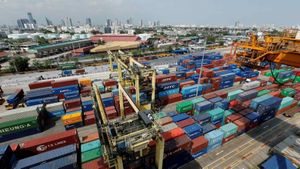The scrutiny surrounding the recent acquisition of Royal Mail by Czech billionaire Daniel Kretinsky continues to intensify, particularly concerning his ties to Russian energy. Kretinsky, who has already made significant investments within the UK, is taking on the challenge of modernizing Royal Mail, which has recently struggled to meet its financial targets and faced regulatory penalties.
On Monday, December 16, 2024, it was reported by Sky News how the Royal Mail group is on the verge of becoming foreign-owned, with the UK government retaining what is known as a 'golden share' to oversee any major changes to ownership or operational structure. This mechanism is often applied to firms deemed of national significance, which is particularly relevant for Royal Mail due to its pivotal role within the UK's communications infrastructure.
Under the purchase agreement, Kretinsky has committed to retaining Royal Mail's headquarters and tax residency within the UK for at least five years. Such conditions are aimed at alleviating concerns surrounding the foreign ownership shift, particularly as Kretinsky is known to have links with Russian business, which has raised eyebrows among various stakeholders.
One of his key promises is to maintain the universal service obligation, which ensures first-class postal service delivery across the nation at a fixed price six days a week. While this commitment has been welcomed, there are suggestions from industry speculators and insiders indicating possibilities for cutting second-class post delivery down to every other weekday. This could indicate potential changes to service structures as Kretinsky navigates Royal Mail's operational efficiency.
Beyond operational commitments, the UK government has also acted to restrict Royal Mail's ability to issue dividends to its owners until certain financial benchmarks are met. These measures extend to any asset sales, including dividend distributions, which could undermine the universal service obligation. Kretinsky’s agreement to allocate 10% of any dividend payouts to workers has also been introduced to help pacify labor unions and demonstrate goodwill toward employees amid these changes.
Despite these reassurances, Kretinsky's background has come under the spotlight. He has shown notable interest in UK assets previously, holding stakes of 10% in Sainsbury’s and 27% of West Ham Football Club. His financial maneuvers, largely funded through profits from his extensive energy ventures, have left many questioning the rationale behind his significant investments.
Kretinsky’s business portfolio includes EUStream, company handling gas transmission from Russia to Europe. Notably, EUStream operates within the bounds of European Union regulations, meaning it refrains from direct trade of Russian gas yet inevitably remains intertwined with the complex and often politically fraught European energy matrices.
The UK government has indicated its satisfaction with Kretinsky's financial practices, yet analysts anticipate heightened scrutiny of his Russian affiliations moving forward. The current geopolitical climate—including sanctions against Russian entities—could complicate matters, especially since many may perceive the acquisition of Royal Mail as part of Russia’s broader influence operations abroad.
Observers are left wondering not just about the motivations behind Kretinsky's pursuit of Royal Mail but about the broader implications for UK communications infrastructure should tensions escalate or regulations change. His vision is clear; Kretinsky sees what he describes as both 'a challenge and an opportunity.' But just how much of this vision for modernization and revitalization can stand up to the pressures of public scrutiny and regulatory overview remains to be seen.
For Kretinsky, the stakes of this deal are incredibly high—not just for Royal Mail’s future but also for his reputation as he navigates the rough waters of international investments amid growing scrutiny of Russian business dealings. Whether he can successfully manage this balance will dictate not only the future of Royal Mail but also the nature of Czech-British business relationships moving forward.



